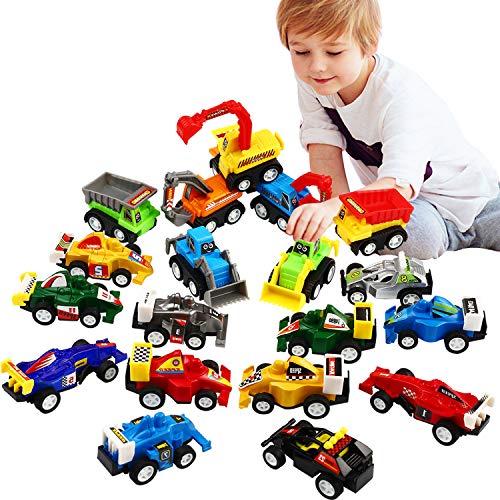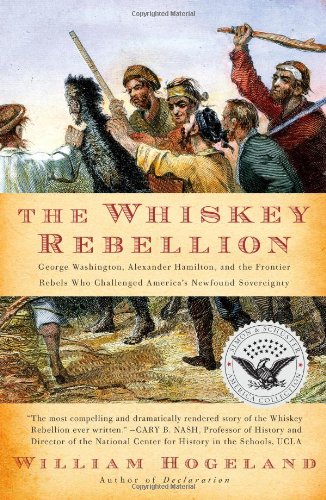10 best recreational therapy books
Finding your suitable recreational therapy books is not easy. You may need consider between hundred or thousand products from many store. In this article, we make a short list of the best recreational therapy books including detail information and customer reviews. Let’s find out which is your favorite one.
Best recreational therapy books
1. Assessment Tools for Recreational Therapy and Related Fields, 4th Edition
Description
Since its first edition in 1990, this has become the standard reference book on assessment in Recreational Therapy.As with the earlier editions, the purpose of this book is to provide both the therapist and the student with specific, critical information about the assessment process, specific tools, and specific standards related to assessment. The information on national assessments, such as the RAI/MDS for long-term care, is especially important to therapists. The fourth edition has 726 pages with five new assessments and updated information on all national and international standards. This book is used in over fifty colleges and nine different countries!
2. Recreational Therapy Handbook of Practice: ICF-based Diagnosis and Treatment
Feature
Used Book in Good ConditionDescription
The International Classification of Functioning, Disability, and Health (ICF) is a new classification system that RTs will be using within the next few years. The RT Handbook prepares you to use it. Every code and the coding process are described in detail.This book is packed with practical how-to information on assessing, treating, adapting, and documenting every physical, cognitive, and social skill you can possibly think of.
Over 30 diagnoses that are common to RT practice are reviewed in an easy-to-read format. Detailed information about the RT approaches and interventions for each diagnosis are provided... and the interventions are even in the book! Over 35 techniques and concepts are provided along with handouts and practical how-to information... and all of them tie back to the ICF codes! The book also reviews common pieces of therapy equipment and explains how to use it, why to use it, and how to get it!
3. Recreational Therapy for Specific Diagnoses and Conditions
Description
Recreational Therapy for Specific Diagnoses and Conditions offers detailed descriptions of 39 diagnoses and conditions that are treated by recreational therapists. Each diagnosis chapter has a description of the diagnosis or condition, including the incidence or prevalence and the ages most affected. This is followed by the causes of the condition; social, emotional, and bodily systems affected; secondary problems that may be found; and information about the patient s prognosis. The next section of the chapter is devoted to the assessment process for the whole treatment team and, in more detail, what the recreational therapist must do to assess the status of the patient. Specific assessment tools and connections to the categories of the World Health Organization s International Classification of Functioning, Disability, and Health are provided. The final sections of each chapter describe team and recreational therapy treatment and how the treatment can be tied to information documented during the assessment process. Efficacy information about each treatment is provided to demonstrate the use of best practice. Each chapter also provides resources for therapists, patients, and families.4. Perspectives on Recreational Therapy
5. 100 Interactive Activities for Mental Health and Substance Abuse Recovery
Description
Ages 8 & Up. Energize,empower and educate your group participants with these 100 interactive activities. Designed for clients dealing with mental health and substance abuse recovery issues. Treatment components common to both are incorporated.The 14 broad categories in this manual are: Anger Management, Assertion, Cognitive Changes, Coping, Inspiration, Mental Health and Sobriety, Problem Solving, Recovery, Relationships, Self-Development, Self-Esteem, Self-Help, Self-Knowledge, Stress Management.
Designed to motivate cognitive and behavioral changes, participants learn to think, problem solve and act to promote mental health. Reproducible materials are included.
6. Recreational Therapy and the International Classification of Functioning, Disability, and Health
Description
The International Classification of Functioning, Disability, and Health (ICF) from the World Health Organization represents a major shift in healthcare. It looks at health, not from the perspective of disease, disorder, or injury, but from the perspective of how a person s health fits in with the rest of his or her life, the kinds of things the person does, and the environment the person lives in. This is what recreational therapists have been saying all along.
Recreational Therapy and the International Classification of Functioning, Disability, and Health was written to bring together the ideas that are already well understood in recreational therapy practice and the model of healthcare represented by the ICF. If recreational therapists take the time to understand and use the ICF, they will find it is an excellent tool for improving practice and demonstrating the importance of the work they do.
This book includes all of the codes in the 2016 version of the ICF. There is an overview of each of the ICF s four sections, Body Functions, Body Structure, Activities and Participation, and Environmental Factors, plus a description of Personal Factors. The purpose and scoring of each section are described with recreational therapy examples. Each chapter in the four sections is covered in more detail with a description of the code set, more detailed scoring examples, an assessment overview, and treatment directions. An evidence review demonstrates the efficacy of treating each set of codes.
For each code, the book provides the full text of the code, describes the code s relevance to recreational therapy practice, explains the assessment process and how to score the code, introduces the reader to code-related treatment directions and adaptations, and cross references the code to the other two books in this series (Recreational Therapy for Specific Diagnoses and Conditions and Recreational Therapy Basics, Techniques, and Interventions).
7. Recreational Therapy Basics, Techniques, and Interventions
Description
Recreational Therapy Basics, Techniques, and Interventions provides 51 chapters about recreational therapy practice. Ten chapters describe the basics including topics such as activity and task analysis, body mechanics, consequences of inactivity, and effects of stress. There are 41 chapters with in-depth descriptions of techniques and interventions used by recreational therapists. These include adaptive sports, behavior strategies, disability rights education, medical play, social skills training, walking and gait training, and wheelchair mobility. Each chapter has a thorough discussion of how to apply the technique along with indications, contraindications, and efficacy research supporting the use of the technique. Expected outcomes, documentation, and links to ICF codes connect the intervention to the therapists work as part of the healthcare team.8. Behavioral Health Protocols and Treatment Plans for Recreational Therapy, Second Edition
Description
Behavioral Health Protocols and Treatment Plans for Recreational Therapy gives professionals and students efficacy-based protocols for behavioral health settings. The book s guidelines also demonstrate how to develop your own protocols and treatment plans. The book has three sections to assist in creating unique and individualized recreational therapy services.* The diagnostic protocols represent the most common diagnostic groups of clients in behavioral health. They outline the treatment and services routinely provided to clients with a specific diagnosis.
* Program protocols include structure, process, and outcome criteria that need to be taken into consideration when planning a new program. They describe a specific treatment group that will be offered to a client.
* The treatment plans cover many of the difficult behaviors of clients to provide problem-centered, individualized treatment planning. They are a useful resource to show how the therapist can interact with a client to achieve effective outcomes.
In addition, bibliographies in each protocol list available outcome-oriented research that may be used to support the effectiveness of recreational therapy services. This expanded second edition includes diagnostic and program protocols for child and adolescent settings, as well as additional protocols for adult and geriatric clients. Behavioral Health Protocols and Treatment Plans for Recreational Therapy will be a frequently used reference for your professional practice.
9. Assessment Tools For Recreational Therapy: Red Book #1
Description
Since its first edition in 1990, this has become the standard reference book on assessment in Recreational Therapy. As with the earlier editions, the purpose of this book is to provide both the therapist and the student with specific, critical information about the assessment process, specific tools, and specific standards related to assessment. The information on national assessments, such as the RAI/MDS for long-term care, is especially important to therapists. The fourth edition has 726 pages with five new assessments and updated information on all national and international standards. This book is used in over fifty colleges and nine different countries.10. Yoga Therapy for Stroke: A Handbook for Yoga Therapists and Healthcare Professionals
Description
A guide to yoga therapy for post-stroke rehabilitation, this book is for yoga teachers and yoga therapists, but also for occupational, recreational, physical and speech therapists who work with people with stroke and may integrate yoga into their practice.
Rooted in evidence-based research and written by two yoga teachers who are also academics and researchers in rehabilitation, the book provides basic information about stroke and neuroplasticity, discusses the mind body disconnect that often occurs after stroke, and provides instruction on how to improve balance, strength and range of motion. It also covers effective meditation techniques to help overcome the stress and emotional impact of stroke.
Clear photographs demonstrate yoga postures and activities specifically adapted for stroke patients, alongside case studies.













Recent Comments